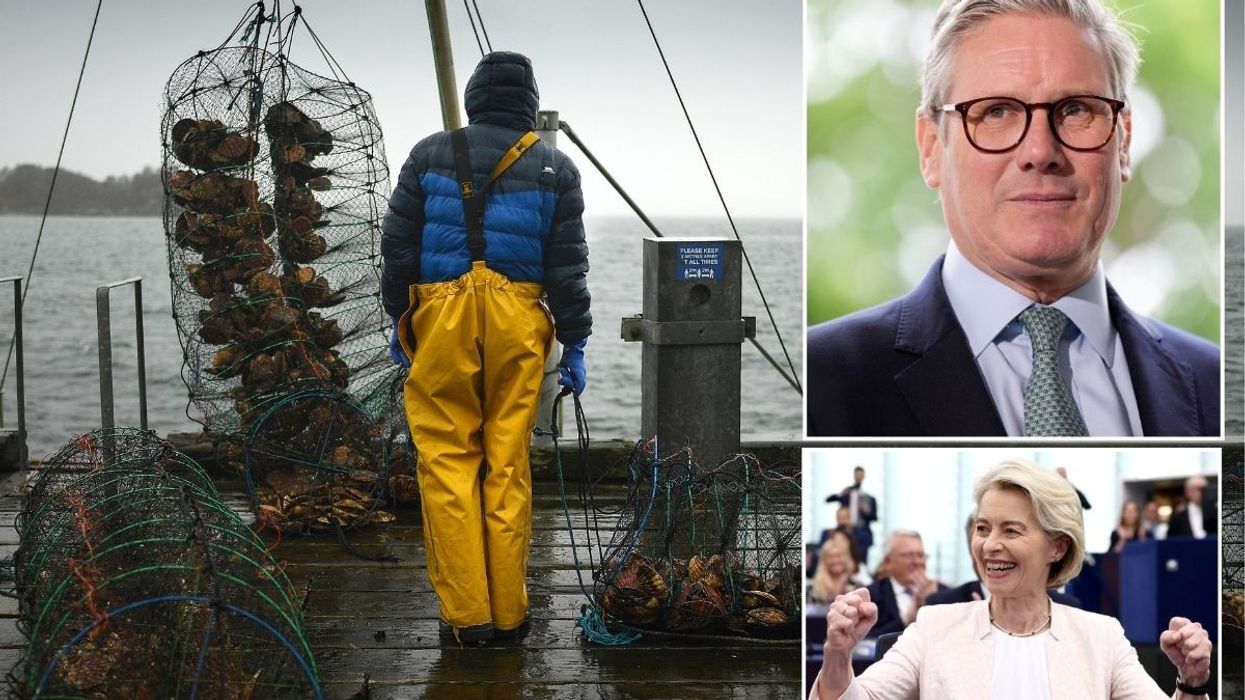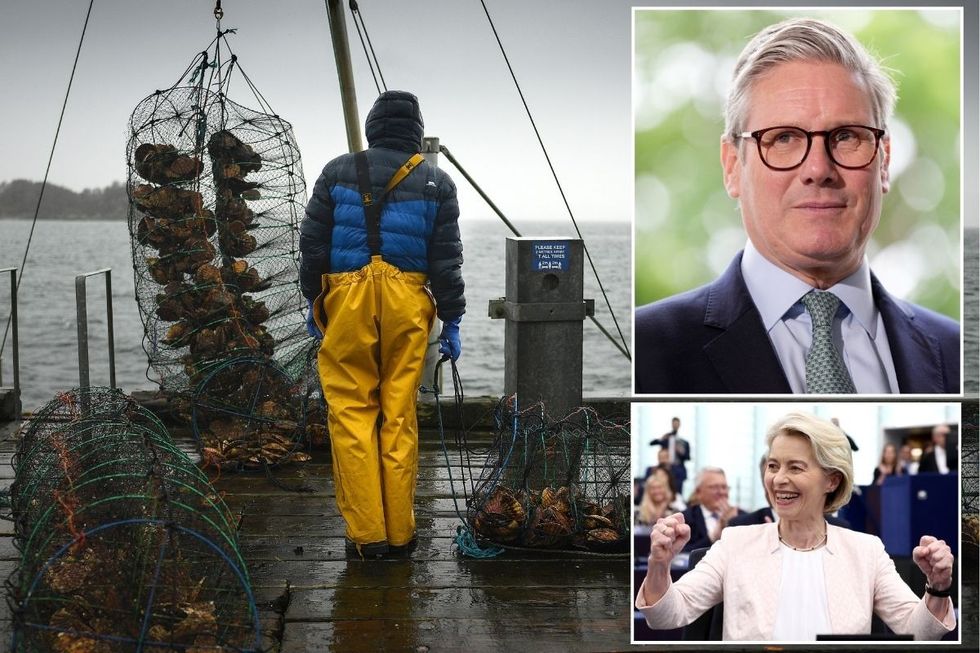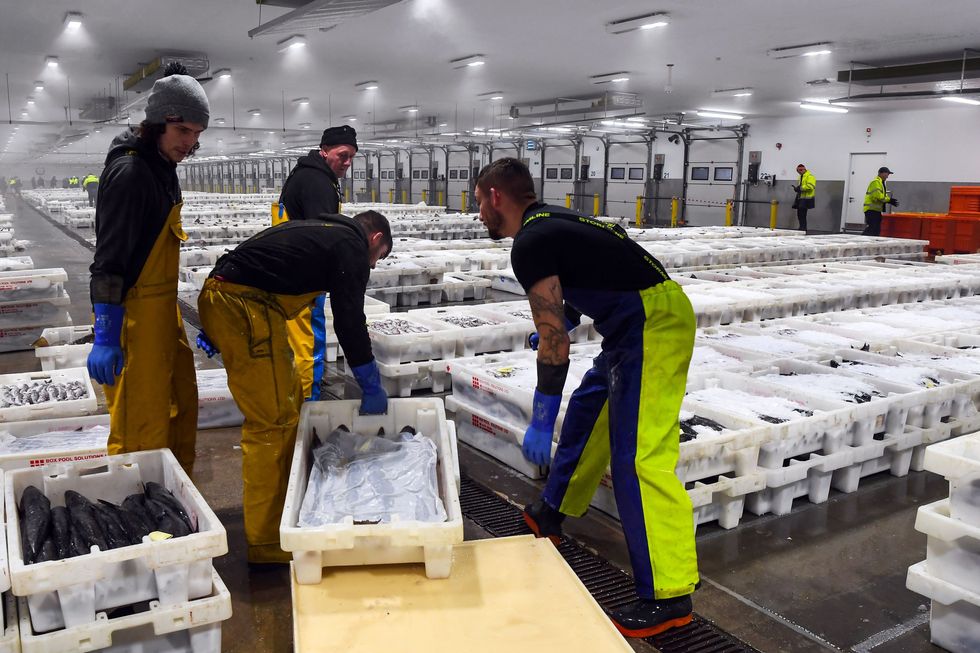
Sir Keir Starmer has been urged to "stand up to the EU’s threats" and ban bottom trawling in a bid to make the most of the UK’s newfound Brexit freedoms.
The Prime Minister, who is hoping to reset relations with the Brussels bloc, faced renewed pressure to protect Britain’s fishing industry and marine protected areas today.
Pressure was mounted on Starmer after the European Commission threatened to take legal action against the UK over its decision to introduce biodiversity protection measures earlier this year.
The continental club was particularly aggrieved on behalf of its Danish fishermen after the UK shut down industrial sand eel fishing on environmental grounds.

In a fresh call for Starmer to stand up to the EU, Conservative Environment Network’s deputy director John Flesher told GB News: "Brexit has empowered us to decide what happens in British waters.
"The Conservative Government rightly stopped bottom trawling in some marine protected areas (MPAs) and outright banned sand eel fishing in the North Sea.
"Taken together, these steps will protect the seabed and allow Britain’s native fish and bird populations to recover after years of damaging practices, largely by EU vessels.
"Recovering fish stocks will be good for British fishermen too, as numbers increase in the waters around protected areas.
"In threatening to take the UK to court for these measures, the EU is failing to respect our authority over our own waters.
"The EU talks a good talk on marine protection, but in challenging these steps it is arguing for bottom trawlers to destroy the seabed and release huge amounts of carbon emissions, and to keep overfishing sand eels, which are a critical food source for our nation’s puffins and kittiwakes."
POLITICS LATEST:- POLL: Does Britain have two-tier Government as well as two-tier policing? VOTE HERE
- Wes Streeting outlines plan to save NHS from 'worst crisis in its history'
- Dr David Starkey: ‘Mass migration has destroyed the Britain I knew’

He added: "The Conservative legacy on seizing our Brexit benefits to protect nature is a proud one.
"Labour should stand up to the EU’s threats and go further by banning bottom trawling in all marine protected areas."
The European Commission said it had triggered the dispute settlement mechanism in the EU-UK Trade and Cooperation Agreement in April after the UK Government and devolved Scottish Government pushed ahead with its industrial sand eel fishing ban.
EU commissioner for environment, oceans and fisheries, Virginijus Sinkevičius said at the time: "The UK’s permanent closure of the sand eel fishery deprives EU vessels from fishing opportunities, but also impinges on basic commitments under the EU-UK Trade and Cooperation Agreement."
Sinkevičius added: "Measures are already in place to protect this important species, including by setting catches below the scientifically advised levels and closed areas for protecting seabirds."
However, the UK claimed its measures were necessary to safeguard vulnerable seabird populations.
Danish fishermen felt particularly aggrieved as the UK's fishing deal with the EU granted Copenhagen 90 per cent of the combined quota for the diminutive fish of around 160,000 tonnes, with approximately a third of this allocated to areas in UK waters.

The UK's fishing communities decisively support leaving the Brussels bloc, with all of the constituencies covered by the largest fishing ports in England and Wales voting to leave the EU.
Estimates suggest around 90 per cent of the fishing community backed Brexit.
The wider public is also very supportive of ending bottom-trawl fishing.
Polling commissioned by the charity Oceana UK in June revealed that 81 per cent of adults in the UK believe bottom-trawl fishing should be banned in marine protected areas.
The practice includes dragging heavy metal gear and nets across seafloor habitats.
The net can be as large as football fields and weigh several tonnes.
Experts fear the practice could decimate UK habitats vital for marine health, such as reefs, kelp forests and seagrass meadows.
GB News has approached the Department for Environment, Food & Rural Affairs for comment.
from GB News https://ift.tt/q7VEDUJ



0 Comments